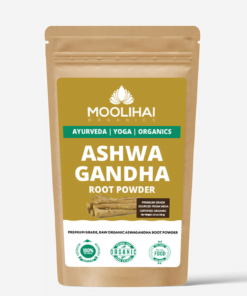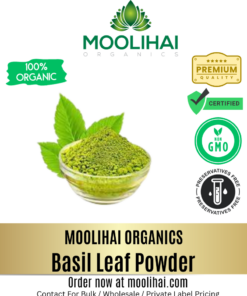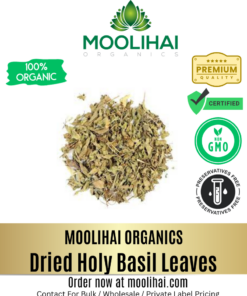Info
10 Best Herbs to Maintain Nervous System Health
In this Article
The nervous system is the main part of the body that controls the responses it makes to mostly everything—it is the body’s way of connecting not just to the outside world, but also to the inside.
The nervous system is the one responsible for every movements that a person makes, it is also the one responsible for making a person feel different feelings such as touching something hot or something cold.
For example, a person touches an ice; the cells that connect the skin to other parts of the body, especially the brain, transmit the information. It is a complex collection of a person’s nerves and cells—these cells are called neurons; they are the ones responsible for transmitting signals all throughout the body.
The nervous system, just like all the system in the body, is a group of organs that performs very specific and important functions for the body. The nervous system is mainly made up of the brain, the spinal cord, nerves and ganglia. These organs, together, carry and perform the functions of the nervous system.
Basically, the nervous system is too complex and important that it controls the way a person feels, thinks and many more. Having the brain in the nervous system is reason enough to consider it as one of the most important systems in the body.
Understanding How the Nervous System Works
The brain is composed of very tiny cells called neurons. It is said that there are billions of those cells inside a person’s brain. Each of them has jobs to do for the nervous system. To understand how the nervous system works, the neurons just send information from different parts of the body and transmit it to the brain. It also works the other way; neurons also transmit information from the brain to different parts of the body.

Sensory neurons are the ones responsible for transmitting messages and information from different organs such as the eyes, nose, ears, skin and tongue to a person’s brain. While the motor neurons are the ones responsible for transmitting information from the brain to the rest of the body parts. So that is just how the nervous system basically works. That is how a person can feel, see, touch or hear. That is how a person can do movements, think and even decide on his or her own.
Unfortunately, the nervous system gets depleted at times toojust like all the systems in the body. It experiences damages, both temporary and permanent. That is why it is important to take good care of it since it is the main part that regulates and controls the body.
Some of the problems or disorders regarding the nervous system will be discussed in order to know how important it is for a person to have a well-functioning nervous system. Also, some natural resources, herbs to exact, that are proven to be of great help for the nervous system will be listed and discussed too.
Some Diseases of the Nervous System
Here are just some of the diseases and a very, very short description of them:

1. Epilepsy
Epilepsy is commonly known as having seizures. Another term used for this is convulsions. It happens when there are above normal electrical discharges that happens in a person’s brain. This disease may occur to a person of any age. Fortunately, this one can be controlled using medication.
2. Parkinson’s Disease
This disease is progressive. It affects a person’s movement over the course of time. Due to the damage experienced by the nerve cells in the brain, the smooth control of a person’s muscles and movements gets affected.
3. Alzheimer’s Disease
Almost everyone is familiar to this type of nervous system disease. This one mostly affects a person’s mental functions, especially the memory.
4. Multiple Sclerosis
This disease occurs when a person’s immune system attacks the protective linings of the nerves. The exact cause of this disease is still unknown. Patients diagnosed with this disease may suffer from losing their sights and worse complications such as paralysis.
5. Huntington’s Disease
This disease is an inherited disorder that causes the cells in the brain to degenerate.
6. Amyotrophic Lateral Sclerosis
This disease weakens a person’s muscles, resulting to a decline in the effectivity of physical functions.
7. Bell’s Palsy
This disease is known to be the sudden paralysis or weakness of one side of a person’s face.
There are still other diseases relating to a person’s nervous system. Some are just listed above to give some information and understanding about how life-threatening it is to develop some of these disorders.
10 Herbs to Help Maintain the Nervous System
Due to the threat of disorders in the nervous system, it is very important to take care of the parts of the body that control, regulate and communicate it to both internal and external things. That is why, it is good to take advantage of the use of some of the herbal plants that are best known to be a support for the body’s nervous system.
Fortunately, researchers have discovered the use of many herbal plants out there as a remedy to some of the related problems that people have regarding their nervous systems. Here are some of the best herbal medicines and supplements that are proven to be of great help:
1. Chamomile (Matricaria Recutita)

Matricaria Recutita is the scientific name of the herbal plant that is commonly called as Chamomile.
Chamomile is an herbal plant that is widely used to prepare tea and Chamomile Tea is one of the most famous teas that can be served in coffee shops nowadays.
Most people are fond of this tea due to its truly good taste and flavor. Not only is the Chamomile Tea famous in coffee shops but it is also best known to be served before sleeping time.
People consume Chamomile Tea for some time now without knowing that it is something that benefits their bodies’ nervous system. This tea has an effect of giving a person a healthy cycle of sleep.
Chamomile Tea is believed by researchers to have a good impact to a person’s GABA—a calming neurotransmitter. In addition, it is also believed to help relieve a person’s anxiety.
Chamomile is not only an incredible Central Nervous System remedy; it is also believed to have benefits to a person’s Enteric Nervous System too—the Enteric Nervous System of person resides in the guts.
The Enteric Nervous System is communicative all throughout the day; it is also one of the body parts that are responsible for the responding to internal and external cues. Chamomile is also believed to have an antispasmodic and soothing effect to a person’s entire guts.
In addition, Chamomile also calms, relaxes and restores an overstimulated person back to the normal state. With its calming and relaxing effect, Chamomile is also one of the things that are perfect fit for people who are stressed not just mentally and emotionally but also digestively. People who have a nervous stomach and digestive-related issues can try drinking Chamomile Tea daily.
While Chamomile is most commonly famous as an ingredient or flavor to prepare tea, it can also be consumed in the form of supplements and tincture.
2. Passionflower (Passiflora Incarnata)

Passiflora Incarnata is the scientific name of the herbal plant that is commonly called as Passionflower. Researchers believe that it is a great support to a person’s nervous system that is exhausted or depleted.
When a person’s nervous system gets depleted, it tends to give a person an overactive mind and sleeping problems. Passionflower is an incredible nerve tonic.
Just like Chamomile, Passionflower is also a great herbal plant for the support of the Nervous System. It also gives off the same calming effect for people. Passionflower is believed by researchers to have a good impact to a person’s GABA too, just like Chamomile.
Because of the benefits listed above, people who consume it say that they feel calmer and more relaxed after the intake. Passionflower has been used by mankind for a long time now. It was traditionally, and it is still nowadays, used for treating issues such as anxiety, concentration issues, sleeping problems and even for pain. With it being said to be of great help for sleeping problems, itcomes truly handy for people who have conditions like insomnia.
Usually, when a person gets exhausted, the feeling of desperation and anxiety tend to accompany him or her in sleep—thus, making it hard to have a peaceful mind. But the good thing is Passionflower can be of extreme help when it comes to dealing with that issue.
It helps in allowing the body to fall in peaceful sleep when taken an hour before sleeping or bedtime. When taken regularly, it benefits the body with a long-term effect of having a healthy sleeping cycle.
Passionflower is available in dry form, usually used to prepare tea. It is also available in the form of supplements.
3. Skullcap (Scutellaria Lateriflora)

Scutellaria Lateriflora is the scientific name of the herbal plant that is commonly called as Skullcap.
Skullcap is one of the best tonics used that brings nourishment to a person’s nervous system. It helps in repairing the nervous system after being in the period of stress.
Skullcap helps in making the body relax and the mind calm; it also helps in easing some pain. Just like Passionflower, it can be of extreme help for people who are suffering from conditions like insomnia.
Skullcaps, despite being one of the most effective herbal plants to support a person’s nervous system, is one of the underrated and underused medicinal plants. It is a gentle yet powerful plant that helps the nervous system in many ways.
It is a perfect fit for people who hold their stresses in their muscles and joints—those who suffer from stiff neck and tightness in their shoulders. Researchers believe that this plant helps the musculoskeletal system.
Every person responds differently to short-term and long-term stress—some become agitated, some experience episodes of anxiety attack and many more. Fortunately, Skullcap works well for people who are under short-term and long-term stress.
Skullcap can be consumed as a tea. It can also be combined with Chamomile for a differently relaxing flavor.
4. Valerian Root (Valeriana Officinalis)

Valeriana Officinalis is the scientific name of the herbal plant that is commonly called as Valerian Root.
Since the ancient times of Greek and Roman, Valerian Root has been used to calm people down and treat conditions like insomnia. Because of its effectiveness, it is still used by people nowadays to treat sleeping disorders and anxiety.
When the nervous system of a person becomes overactive, Valerian Roots help it to calm down. Just like Chamomile and Passionflower, Valerian Root is believed to increase the amount of a specific neurotransmitter that is called GABA.
Because of GABA’s calming properties, Valerian Roots affect the sleep and rest of a person. People who are suffering from restless nights and anxiety attacks find Valerian Roots truly helpful.
Valerian Roots can be consumed as a tea and a supplement. Because it has some sedative effects, it is advisable to be taken before sleeping or bedtime.
5. Ashwagandha (Withania Somnifera)

Withania Somnifera is the scientific name of the herbal plant that is commonly called as Ashwagandha.
By being an adaptogen and a calming nerve tonic, Ashwagandha helps restore a person’s body after being under a long period of stress.
Ashwagandha being an adaptogen helps a person’s nervous system to be more resilient to stress by balancing the stress hormones.
Ashwagandha is considered as a powerful herb in Ayurvedic Medicine—a system of medicine that is practiced in the country of India. It has been used for beyond 5000 years in India and is considered as one of the most effective adaptogens.
Besides being an adaptogen, Ashwagandha has properties that are anti-inflammatory and antioxidant, making it of extreme help for the support and protection of nervous system health.
Ashwagandha is also believed to boost a person’s cognitive function, calmness and memory. It also comes handy or helpful when reducing people’s stress and protecting them from developing Alzheimer’s Disease and Dementia.
Ashwagandha can be taken in the form of a supplement.
6. Rhodiola (Rhodiola Rosea)

Rhodiola Rosea is the scientific name of the herbal plant that is commonly called as Rhodiola.
Rhodiola Plant has properties that make it useful in hindering certain and long-term damages that might happen to a person’s nervous system.
It also has some properties that make it useful for maintaining the health of the nervous system at a good level; thus, causing it to function well.
Just like most of the herbal plants listed above, Rhodiola boosts the amount of certain neurotransmitters. It also has properties that are anti-inflammatory and neuroprotective.
It has been proven to be of extreme support for people who suffer from anxiety. But not only that, it also helps to improve and enhance a person’s learning, memory and cognitive function. Researchers also believe that Rhodiola may help protect a person from developing Alzheimer’s Disease.
Just like Ashwagandha, this herbal plant is also considered as another adaptogen. Normally, Rhodiola is consumed by people in the form of a supplement.
7. Ginkgo Biloba (Ginkgo Biloba)

Ginkgo Biloba is the scientific name of the herbal plant that is commonly called also as Ginkgo Biloba or just Ginkgo. This herbal plant is one of the most famous in the world.
It is one of those medicinal plants that have a lot of benefits and uses. Besides being of great help for other body functions, Ginkgo Biloba is important for the nervous system health too.
As most people know, the extracts from this herbal plant have used for many years up to the now.
Just like most of the herbal plants mentioned above, Ginkgo Biloba helps people who suffer from anxiety and improves a person’s cognitive function and memory. It also helps in protecting a person from developing health issues such as Dementia and Alzheimer’s Disease.
Ginkgo Biloba comes as an extreme help to achieving a well-functioning nervous system by preventing damages from happening. It is believed to reduce the inflammation in the nervous system if there is any.
Ginkgo Biloba is known to increase the amount of certain neurotransmitters such as serotonin and GABA. Normally, the extracts from this herbal plant is consumed in the forms of capsules, tablets and teas.
8. Lemon Balm (Melissa Officinalis)

Melissa Officinalis is the scientific name of the herbal plant that is commonly called as Lemon Balm.
People know Lemon Balm due to its refreshing smell and benefits for a healthy nervous system.
Due to its benefits that help treat some disorders regarding nervous system, this herbal plant has been widely used for beyond 2000 years up to now.
Just like most of the herbal plants listed above, this one helps boost the production of neurotransmitters in a person’s body such as GABA.
Children who suffer from concentration issues and restlessness can be positively affected by this herbal plant. It boosts a person’s cognitive function and other factors that have strong links to mood; thus, making it an extreme help for people who suffer from anxiety.
Moreover, Lemon Balm is one of the best options to consider if a person wants to think clearly and boost the mood he or she is feeling. Lemon Balm can be consumed as a supplement or as a tea.
9. Holy Basil or Tulsi (Ocimum Tenuiflorum)

Ocimum Tenuiflorum is the scientific name of the herbal plant that is commonly called as Holy Basil.
Just like Ashwagandha and Rhodiola, Holy Basil is an adaptogen too. It is a great help for a person’s adrenal glands and endocrine system.
A person’s adrenal glands are the ones responsible for the release of a certain hormone called cortisol. Cortisol is the hormone in the body responsible for dealing a person’s response to stress and energy needs.
The adrenal glands are considered as one of the most important glands in the body; that is why it is important to support them during the times of both short-term and long-term stresses.
It comes as a great help for a nervous system that is depleted—may it be short-term or long-term. Holy Basil Tea is believed to help a person who suffers from different types of stresses.
10. Milky Oat (Avena Sativa)

Avena Sativa is the scientific name of the herbal plant that is commonly called as Milky Oat.
Milky Oat is known and considered to contain a lot of important nutrients and vitamins.
When taken for a long period of time, four months or longer to be exact, it gradually gives the nervous system soothing effects due to its calming, restoring and nourishing properties.
The consumption of Milky Oat is ideal for people who suffer from extreme nervous exhaustion since it has some restoring properties that could help them as days progress.
Milky oat can be consumed as a tincture and an addition to teas.
Takeaway
The herbal plants or supplements mentioned above are just some of the good things that can help in maintaining a healthy nervous system. Of course, because of recent discoveries brough by technology, there are so many other ways of getting some things done including taking good care of the body.
But isn’t it good to have and enjoy natural ways of preserving the body and its functions? There is a reason to everything; and having these herbal plants around is not something to be taken for granted. People are to make use of it in all the good ways possible.
Every person in the world could all agree that having a well-functioning nervous system is of much importance all throughout a day. There are a lot of people affected by issues and problems regarding the nervous system, some lost their lives due to having disorders.
Without the nervous system, a person will not be able to feel, think and connect to the environment he or she lives in.That is why, taking care of it is not an option that people cannot choose; it is an essential thing that is to be a constant part of every one’s daily lives.












Ponnatharam Stone (Raw) | For Permanent Hair Removal
Vengai Paal | Black Bindi | Dhrishti Pottu | Vengai Pottu for Babies | 100% Natural
Dried Avaram Senna Flower / Cassia Senna Auriculata / Aavaram Poo / Tarwar / Amaltas Leaves / Senna Auriculata / Avaram Poo / Sanay / Alexandrina / Tanner’s Cassia flower
Natural Dried Moringa Flower – Moringa Oleifera – Drumstick Tree Flower – Murungai Poo – Munagaku Flower
Akasa Garudan Kilangu / Redfruit Creeper / Corallocarpus Epigaeus
Original Edible Camphor | Pacha Karpooram | Bhimseni Camphor
Saussurea Obvallata Seeds / Brahmakamal Seeds / Queen of the night / Sacred Saussurea Kon Kapfu / Brahma Kamalam / Nishagandha
Insulin Leaf Powder / Chamaecostus Cuspidatus / Costus Pictus / Spiral Ginger / Insulin Powder / Costus Igneus
Achu Pottu for Babies | Bindi Mould Set | Baby Seratta – 1 Set
Kaunch Beej Powder |Poonaikali | Velvet Bean Powder | Mucuna Pruriens | Kapikacchu | Natural Nervine Tonic & Muscle Builder
Aalam Pazham / Banyan Fruit Powder / Ficus Benghalensis / Marri Palu / Bargad / Dodda Alada Mara / Peraal / Vat Vriksha Powder
Traditional Vasambu Valayal for Babies | Calamus Bracelet | 100 % Pure & Natural